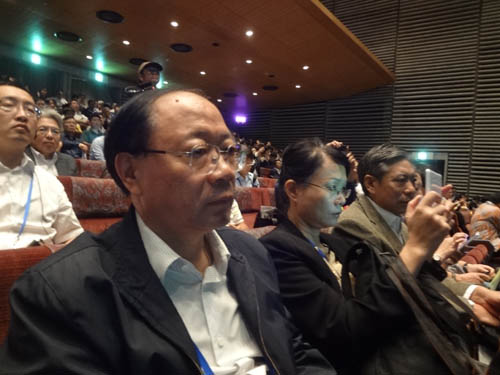Two New Chinese Geosites Added to Global Geoparks Network
Two new Chinese sites, together with seven other geosites around the world, were added to the UNESCO-supported Global Geoparks Network during the 4th Asia-Pacific Geoparks Network (APGN) Symposium that took place in the San’in Kaigan Geopark, Japan, from 16 to 20 September.
With the two newly-designated, the number of Global Geoparks in China now reaches 33, the largest number of Global Geoparks hosted by a country at the current stage. The Global Network now numbers 120 Geoparks in 33 countries.
The 2 Chinese sites newly inscribed are:
Dunhuang (China)
Located east of the Tarim plate, in the westernmost part of China, Dunhuang Global Geopark is rich in geoheritage of great scientific value that is of interest for both education and tourism. The site features yardangs, rock protuberance shaped by wind erosion, typical of this extremely arid part of China. The Geopark also encompasses the Mogao Caves, a World Heritage site, which were excavated in the Quaternary strata (2.6 to 1.5 million years ago).The caves are of combined geological and cultural value as they house statues and wall paintings, which span 1,000 years of Buddhist art.
Zhijindong Cave (China)
Zhijindong Cave Global Geopark is located in the west of the Guizhou Plateau in southern China. It is composed of three geological land formations: Zhijindong Cave Scenic Area, Qijiehe River and Dongfenghu Lake. The Global Geopark features many beautiful and precious karst landforms of various shapes and types, among them caves, gorges, natural bridges and sinkholes.
The other seven newly inscribed Global Geopark are Troodos (Cyprus), Sitia (Greece), Reykjanes (Iceland), Gunung Sewu (Indonesia), Pollino (Italy), Mount Apoi (Japan), and Lanzarote and Chinijo Islands (Spain).
The Chinese delegation for the 4th APGN Symposium was headed by Prof. Wang Xiaolie, Director of the Chinese Geoparks Network and Ms. Chen Xiaoning, Deputy Director-General of the Department of Geological Environment, the Ministry of Land and Resources of China. Prof. Long Changxing and Prof. Jin Xiaochi from the Chinese Academy of Geological Sciences were also specially invited to attend the APGN 2015 as the Global Geoparks Network Bureau Member.

Chinese Delegation at the APGN 2015

Group Photo of Chinese Delegation and Global Geoparks Network Officials

